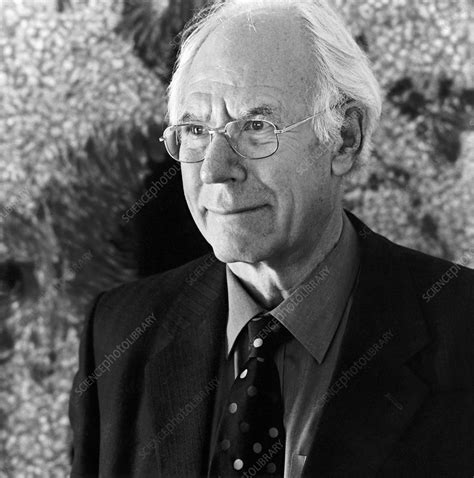A Quote by Ursula Goodenough
Human consensus does not generate reality. Were it able to do so, the Sun would have taken to orbiting the Earth some time ago.
Related Quotes
Science is science. Science is what is. After discovery, tests, trial, if a consensus of scientists today said that the sun orbits around the earth, would we say that they're right simply because there is a consensus? No. Because we know the earth orbits around the sun just as if there were a consensus that the earth is flat would we agree with them? No. So there can't be a consensus on something that hasn't been proven. This is a political movement. This whole global warming thing is a political movement.
Science has an uncomfortable way of pushing human beings from center stage. In our prescientific stories, humans began as the focal point of Nature, living on an Earth that was the center of the universe. As the origins of the Earth and of mankind were investigated more carefully, it became clear that Nature had other interests beyond people, and the Earth was less central than previously hoped. Humankind was just one branch of the great family of life, and the Earth is a smallish planet orbiting an unexceptional sun quite far out on one arm of a run-of-the-mill spiral galaxy.
The natural world around us shows the way to relief. All of life is maintained by the sun, by the air, by water, by the earth and its resources. And to whom was the sun given? To everyone. If there is any one thing that people do have in common, it is the gift of sunlight. But as the early Christians said, "If the sun were not hung so high, someone would have claimed it long ago."
Finally, I would remind you to notice where the claim of consensus is invoked. Consensus is invoked only in situations where the science is not solid enough. Nobody says the consensus of scientists agrees that E=mc2. Nobody says the consensus is that the sun is 93 million miles away. It would never occur to anyone to speak that way.
Asteroids are deep-space bodies orbiting the Sun, not the Earth, and traveling to one would mean sending humans into solar orbit for the very first time. Facing those challenges of radiation, navigation and life support on a months-long trip millions of miles from home would be a perfect learning journey before a Mars trip.
Take note, theologians, that in your desire to make matters of faith out of propositions relating to the fixity of sun and earth you run the risk of eventually having to condemn as heretics those who would declare the earth to stand still and the sun to change position-eventually, I say, at such a time as it might be physically or logically proved that the earth moves and the sun stands still.
From wherever the emissions come, they have the same effect: They trap much more heat from the sun, melt the ice, raise the sea level, cause stronger storms, floods, drought, bigger fires, generate millions of climate refugees, destabilize political systems, threaten the growing of food crops and cause a number of other catastrophic consequences which, taken together, threaten the basis for the future of human civilization on the Earth.
I've seen [Donald Trump] appear in a film or a TV show cameo or the tabloids, and he's a grotesquely distasteful human being and always has been, always made me want to take a shower. But other people fell in love with him as a reality star. So does that mean that the entertainment industry is doing something wrong? I think reality TV answered that question a long time ago: Yes, it's doing something terribly wrong. But there's some great reality TV, and I'm not bagging on it completely.
Variable behaviour of the sun is an obvious explanation, and there is increasing evidence that Earth's climate responds to changing patterns of solarmagnetic activity. ... If you look back into the sun's past, you find that we live in a period of abnormally high solar activity. ... It's a boom-bust system, and I would expect a crash soon. ... Having a crash would certainly allow us to pin down the sun's true level of influence on the Earth's climate. Then we will be able to act on fact, rather than from fear.
To be able to rise from the earth; to be able, from a station in outer space, to see the relationship of the planet earth to other planets; to be able to contemplate the billions of factors in precise and beautiful combination that make human existence possible; to be able to dwell on an encounter of the human brain and spirit with the universe
Most of the Pyramids were observatories in perfect alignment. Some Pyramids were aligned so that the sun would hit them at a certain time of the year. And yet, it could rain all year, and not a drop of rain could get inside. No one covered the hole. So that took some high intelligence to line a thing up so that the exact time of year when the sun was in the exact position, it would light up the inside of that crypt.


































